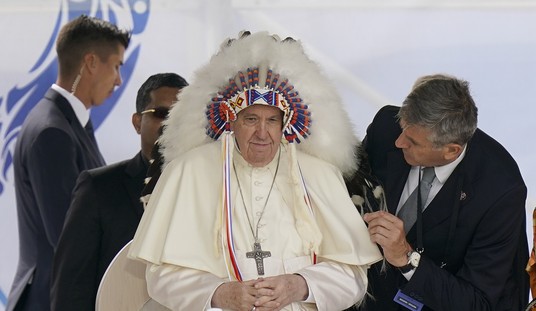In the aftermath of the exposure of the Department of Justice’s raid on Associated Press phone records, the White House has tried to mollify outraged journalists by reversing course and backing a media shield law that has floated around for years. This doesn’t actually explain how the Obama administration would abide by such a law, since it violated existing law in its zeal to punish the AP for scooping its PR efforts, and at least one journalist organization has already scoffed at the President’s sudden interest in shield law.
But there are more fundamental issues with the shield law being belatedly embraced by The Administration Most Likely To Violate It, writes Bloomberg columnist Stephen Carter. Not only is it full of ambiguities and holes in precisely the same areas that the Obama administration violated existing law, its protections only extend to the larger players in the media market:
But this bill, much like the guidelines on which the Justice Department was supposed to rely before seizing telephone records of Associated Press reporters, is chock-full of exceptions — particularly for national security cases.
The statute, in any case, says only that the government can’t subpoena documents or testimony from journalists until it has exhausted other reasonable means of getting the same information. In a saner world, this would be a universal standard — but it probably wouldn’t be a significant change for the practice of journalism. Even in the absence of a shield law, most prosecutors are too savvy to go after journalists. The price can be too high. If a prosecutor does decide to try to pry a source out of a reporter, chances are he has indeed run out of other ideas.
It’s worth pointing out while the bill would extend those protections to state and local jurisdictions, these restrictions exist already in federal statute regarding the federal government — in fact, in the statute that Justice trampled in raiding the AP’s phone records. Whether this strengthens protections for journalists in dealing with prosecutors at other levels of government certainly seems questionable for now, given the lack of protection the existing statute provided the AP.
That’s not all, though. Instead of defining what should be covered, Carter points out, the shield bill defines who gets covered — and that’s bad news for free-lancers and citizen journalists:
The protection applies only to a “covered person,” and a covered person is defined with disturbing narrowness:
“A person who regularly gathers, prepares, collects, photographs, records, writes, edits, reports, or publishes news or information that concerns local, national, or international events or other matters of public interest for dissemination to the public for a substantial portion of the person’s livelihood or for substantial financial gain and includes a supervisor, employer, parent, subsidiary, or affiliate of such covered person.” …
The main problem is that the statute, by protecting only those who commit journalism professionally, would drive a fully informed and rational leaker to go to a reporter for a mainstream media organization rather than to a blogger or a law student. To which you might say: So what? Maybe it’s better that the leak be published in the New York Times or broadcast on CBS.
Maybe — but do we really want the government, as a matter of policy, making judgments about where leakers ought to be encouraged to leak? By raising the costs on others who would cover the news, the shield law in effect subsidizes the working press. It isn’t at all clear why this is a proper government function.
The short answer is it isn’t. These shield laws are supposed to be based on putting teeth into the First Amendment right to free speech. Note, as Carter does, that the First Amendment doesn’t just apply to the full-time professional media, but to all Americans. When acting as a journalist, anyone should have recourse to these protections, especially under the equal-protection clause of the 14th Amendment.
Instead, this looks like a crony-capitalist sop to large media outlets:
And, certainly, there is no justification for the limit of coverage to one who engaged in these activities “for a substantial portion of the person’s livelihood or for substantial financial gain.” One would think that people who give information away free would receive, if anything, greater solicitude from government. The provision limiting protection to those who make money from disseminating information should be deleted entirely.
I have heard it said that a more broadly worded statute would never pass, not least because media companies might yank their support. Let’s hope this isn’t true, because if it is, it’s hardly an argument in favor of the Free Flow of Information Act. It would instead be evidence that the statute itself is an elaborate form of rent-seeking in the guise of protecting sources.
Or perhaps a payoff from an administration desperate to regain a lost advantage with broadcasters and other large media corporations?








Join the conversation as a VIP Member